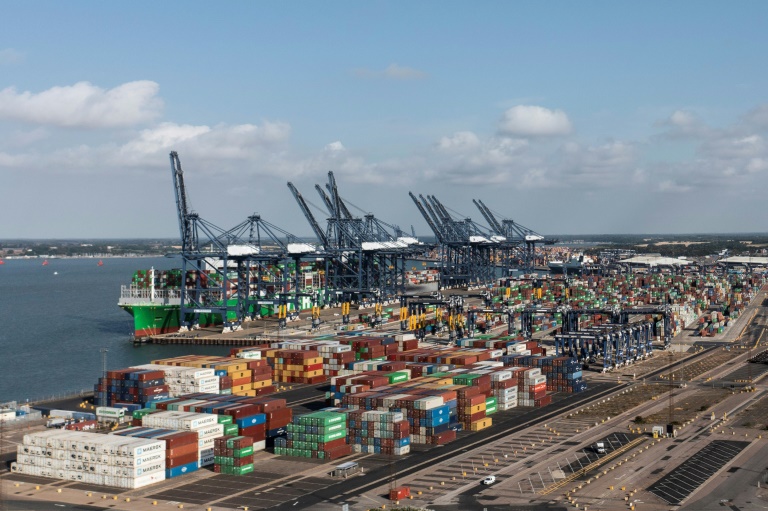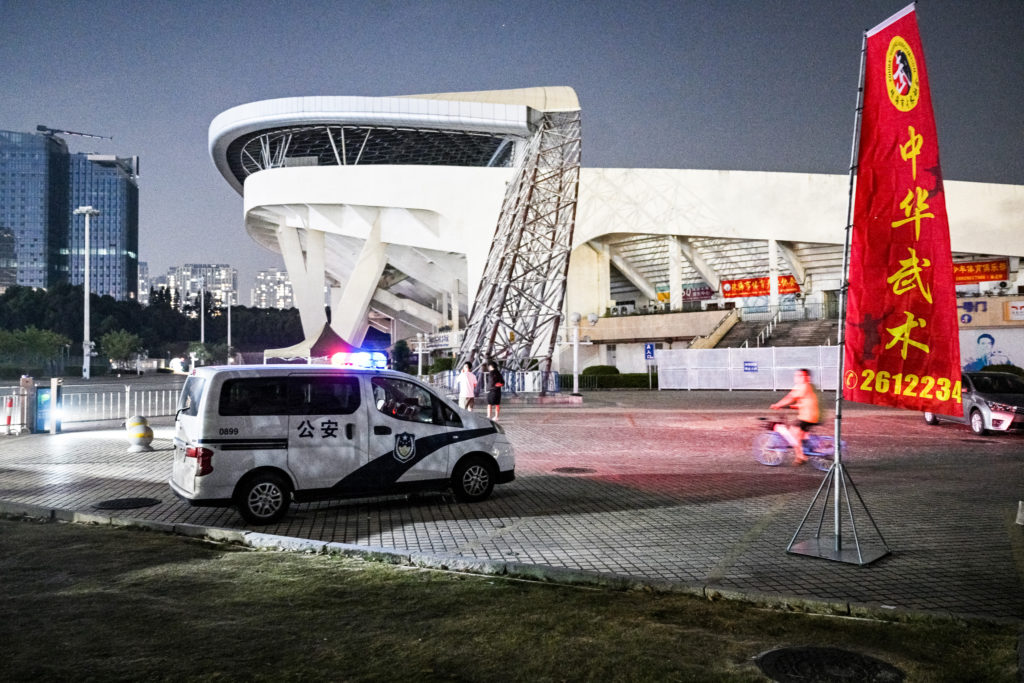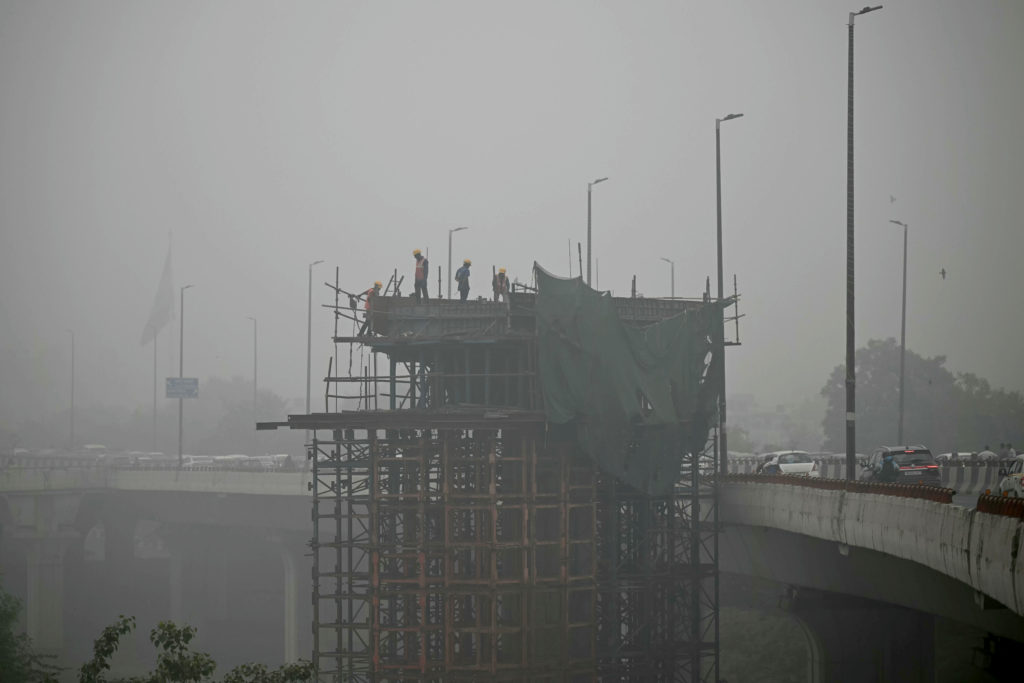Workers at Felixstowe port in southeastern England on Sunday began an eight-day strike, the first in 30 years, as decades-high inflation intensifies a cost-of-living crisis
A strike over pay at Britain’s largest container port threatens to spark fresh delays and rising costs for companies and consumers alike, but logistics experts say there should be no product shortages.
Workers at Felixstowe port in southeastern England on Sunday began an eight-day strike, the first in 30 years, as decades-high inflation intensifies a cost-of-living crisis.
UK workers are striking in vast numbers as runaway inflation erodes wages at a record pace and is set to plunge the economy into recession.
“The strikes at Felixstowe are set to send some British businesses into a spin,” said Ed Winterschladen, executive vice president at Proxima, a logistics consultancy.
“The port is not just Britain’s largest, it is the largest by quite some margin as the port of entry for almost half of ocean freight into the UK,” he said, warning that delays “will have a sustained pricing impact in an already inflationary market”.
The dockers’ walkout mirrors similar action at the UK activities of US online giant Amazon and British postal operator Royal Mail.
Those three strikes will together have a £1-billion ($1.2-billion) impact on trade and cause severe delays, according to delivery firm ParcelHero.
“The triple whammy of industrial actions at ports, postal networks and e-commerce giants means serious disruption,” said David Jinks, ParcelHero head of consumer research.
“Home deliveries will be affected, as will retailers waiting for new stock and manufacturers needing key components.
“Someone will have to foot the bill for all these increased transport costs and history tells us that it is usually the consumer.”
Felixstowe takes daily deliveries from nations such as China and Japan, with containers transporting everything from bicycles and frozen food to household appliances like fridges and washing machines.
They also carry key parts for manufacturers, so any major hold-ups could potentially worsen the nation’s post-Brexit supply-chain crunch.
– ‘Enough stock’ –
However, industry body the British International Freight Association (BIFA) insisted that it was “too early” to assess the impact of the port strike.
Some companies are far more flexible after increasing inventory levels in the face of supply-chain problems sparked by the pandemic.
However, BIFA conceded that past Felixstowe disruption has had a knock-on impact on freight transport and international supply chains.
Jonathan Owens, logistics expert at the University of Salford, gave an upbeat assessment barring any escalation in the dispute.
“The strike is a week and may not cause too much disruption as Felixstowe is not a ‘just-in-time’ delivery port. In general, everything arriving is scheduled in advance,” Owens told AFP.
“There should be enough stock in the supply chain to cope with key products.
“Should the strike progress go on beyond the current time or more disruption planned quickly after this strike period, then alternative inbound supply routes will be found.”
Many retailers have developed such contingency plans to reroute container ships or switch to other transportation, the British Retail Consortium (BRC) said.
Fresh food imports would not be affected because these tend to pass through the port of Dover, the BRC noted.
Nevertheless, the Felixstowe row presents a major headache for international freight.
Shipping giant Maersk said three of its ships have so far been diverted to other North European ports, before seeking to transfer cargo back to Britain.
“For affected export cargo from UK we have been offering our customers alternative ports and routings as far as possible,” a Maersk spokesman told AFP.
“It is hard for us to say whether any specific products will be missing in the supermarkets, etc.”
– Impasse –
Back in Felixstowe, discussions appear at an impasse between management and trade unions.
Nearly 2,000 unionised employees at the port in eastern England, including crane drivers, machine operators and stevedores, are involved in the first strike there since 1989.
Dockers want a 10-percent pay rise with inflation currently running at a 40-year high of 10.1 percent.
The Port of Felixstowe described as “fair” its offer of salary increases of an average eight percent.
“The port regrets the impact this action will have on UK supply chains,” it added.










